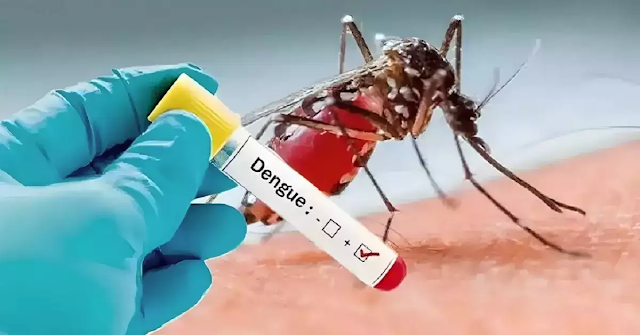Understanding Dengue Fever
Dengue fever is a viral infection transmitted primarily by the Aedes aegypti mosquito. Symptoms include high fever, severe headaches, muscle and joint pain, nausea, and vomiting. In severe cases, dengue can lead to internal bleeding and, if not managed properly, can be fatal. The rise in dengue cases reflects a troubling trend over the last two decades, with mortality rates continuing to climb.
A Record Year
In India, health officials have noted a sharp increase in dengue cases over the past few months. By June, there were already over 32,000 reported cases and about 32 deaths. The Union Health Secretary, Apurva Chandra, indicated that the number of cases at the beginning of August was more than 50% higher than the same period last year.
Historically, dengue cases were concentrated in a few regions. For example, in 2015, India reported approximately 2 million cases, which has drastically increased over the years. As of 2022, every Indian state and union territory has reported dengue cases, a significant expansion of the disease’s reach.
Factors Behind the Surge
Several factors contribute to the alarming rise in dengue cases:
- Urbanization: Rapid urban growth has created densely populated areas where mosquitoes thrive. Stagnant water, a breeding ground for Aedes mosquitoes, is more prevalent in urban settings.
- Climate Change: Increasing global temperatures have expanded the habitats suitable for mosquito breeding, allowing them to thrive even in higher altitudes where they were previously rare.
- Movement of People and Goods: Globalization has facilitated the movement of people across borders, leading to the potential spread of infections like dengue to new areas.
Preventive Measures
To combat the rising threat of dengue, health experts recommend the following preventive measures:
- Eliminate Breeding Sites: Stagnant water should be removed from around homes and communities to prevent mosquito breeding.
- Protect Yourself: Wearing full clothing during the day can help minimize mosquito bites, as Aedes mosquitoes are most active during daylight hours.
- Strengthen Public Health Systems: Authorities must be vigilant and responsive to outbreaks, ensuring that health services are adequately prepared to handle surges in cases.
Vaccination Efforts
Currently, the WHO has recommended two dengue vaccines, but neither has been approved for use in India. Indian health officials are working on developing their own vaccines in collaboration with foreign institutions, though it remains to be seen when these efforts will yield results.
As the world grapples with the ongoing rise in dengue cases, it is crucial for individuals and communities to remain informed and proactive in their efforts to prevent this potentially deadly disease.
Conclusion
The surge in dengue cases in 2024 highlights the urgent need for concerted public health efforts and awareness. With climate change and urbanization at play, addressing the root causes of dengue transmission is essential for safeguarding global health.





